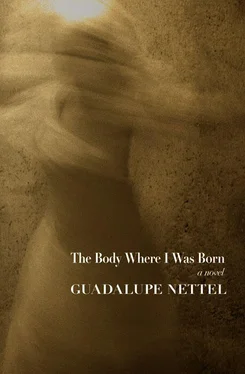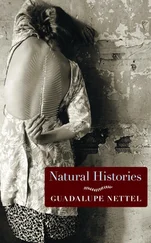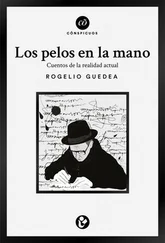As could be expected, my self-esteem and family issues also became a problem at school, although, to be honest, I think the situation there had already been bad for a while. For almost three years I had spent my mornings peacefully writing stories, focused on nothing else. When my mother left, writing no longer interested me; nothing but soccer did. All of my vital energy was centered on this sport, allowing me to forget myself and my circumstances.
I don’t have many memories of my classmates that year. Some of them had been with me since the beginning, and the relationship I had with them was almost like family. Kenya and Paulina sat at my table. The year before, we had become good friends and still were, except everything was so different. For me, the absence of my parents and the never-ending conflict with my grandmother had transformed me into someone else. Not only did it change the way I dressed and did my hair, it also changed the look on my face. I showed signs of developmental delay. While my classmates knew how to divide and were starting to study fractions, I was still having trouble with multiplication. During the previous school years, there had formed in my mind pools of unfathomable depths like the ones described in fifth-grade geography that I knew nothing about. My personality, prey to the typical changes of puberty, became gloomier, more taciturn. I spoke less. Almost nothing in my life mattered. Nor was I motivated to learn. Instead of writing, I now gave myself entirely to reading. Poe’s Extraordinary Stories and some of Kafka’s short stories were my favorites. I identified fully with the main character in The Metamorphosis , since what happened to him was something similar to what had happened to me. One morning, I too woke up with a different life, a different body, not knowing what it was I had turned into. Nowhere in the story does it say exactly what kind of insect Gregor Samsa was, but I quickly gathered it was a cockroach. He had turned into one; I was one by maternal decree, if not by birth. As I was reading the book, I began to research this species at school and discovered its exclusive pedigree, which not many people in my life seemed to be aware of. Just as Spanish kings descended from the Bourbons, cockroaches descended from the trilobites, the oldest inhabitants of the planet. They have survived climate changes, the worst droughts, and nuclear explosions. Their survival does not imply they haven’t known suffering, but that they have learned to overcome it. Reading The Metamorphosis was confusing. From the first pages, I couldn’t tell if it was a misfortune or blessing what had happened to the character — who, as if it all wasn’t enough, never displayed any sort of enthusiasm or drama. Like him, I too inspired some disgust in my classmates. Children are very perceptive and could clearly distinguish the smell of unhappiness my body was secreting. Luckily the teacher I had that year was also perceptive. She realized that something wasn’t right and began to give me special attention. Not only did she understand that I needed help catching up in school, she also intuited that my anxiety wasn’t just academic but emotional. Very tactfully, she would ask me questions in order to learn more about my home life. I told her everything. I told her about the insects that always appeared to me and about how scared I was of losing my sanity or what I had left of it. I also told her about Innocent Eréndira . Not once did she reprimand me for having read a book inappropriate for my age. Rather, she spoke with praise about the story and its author, then asked me to tell her more about why I liked the character. That was how I started talking to her about Ximena and what she had done in front of everyone, and about my admiration for people who find a way to escape their destiny.
“It’s better that you want to kill your grandmother than hurt yourself,” she advised.
Iris, that was her name, became a source of great support from then on. In the Montessori system, students usually work on their own and teachers only step in to show them how to use unfamiliar didactic material. Thanks to the independence of the other students, Iris could stick with me like a beneficent shadow, never impeding, never moralizing, never disapproving. It was like she set herself on a mission to help me get back on my feet, and I can say that she was successful. In a few months, not only did I catch up to my classmates, but she even taught me the next year’s lessons in grammar, geography, history, and math. If there was ever a time I enjoyed this last subject, it was then, when what set me apart from the others and made me different was being able to take the square and cubic roots of incredibly large decimal numbers. When I had surpassed the level of the class, Iris called my grandmother to give her my academic evaluation. My grandmother walked out of that meeting speechless. She didn’t want to tell me exactly what had been said, but I figured it was something very good because when we left she granted me the second kiss of her stay.
Shortly after that, my grandmother announced that we would be going with her to visit our aunt and uncle near the US border, in Juárez, a city with a terrible reputation today. Apart from my mother, my grandmother had given birth to five other children — four more daughters and one son — who had spread out in different states across the country. The Juárez ones, as we usually called them, were my Aunt Victoria’s family. A generous and good-natured woman, Aunt Victoria had always been affectionate and kind to us. Even though I didn’t like the idea of leaving Mexico City and not having the company of my teacher for a few weeks, I had very happy memories of visiting that family with my parents and spending long vacations together. Also, my aunt was similar to Iris in many aspects: caring and capable of understanding the minds of children — of putting herself in their place and calming them. Whereas most adults only saw in me a hostile little girl, insolent and aggressive, she understood since the beginning that my behavior was a response to the immense fragility and fear that were suffocating me then. She devoted hours of her time to talking to me. Her words were like delicate and deft fingers stealthily working their way into my head to deactivate a time bomb. The family had a father who was around, cheerful, and authoritative; a mother devoted to her home and her family, with a background in psychology and a penchant for humanitarian and charity work; four happy and good-looking children who played with us; and a house with a garden in a safe residential development, where you could skate forever and ride your bike — the Juárez ones were exactly what we were not. Maybe that’s why we were so drawn to them. To live with them, to stay at their house, to adopt their ways, to belong for a few days to a functional family, was like winning a trip to Fantasy Island, the TV game show in which participants live their wildest dreams, but only for a few days. And what was more, fifteen minutes away by car was the border and the country that also seemed, in childhood at least, like a marvelous world, with its theme parks, shopping malls, picture-perfect houses, three-level playgrounds, clean movie theaters, and permanent scent of newness. The visit, which was only supposed to last two weeks, went on for more than a month. In this time, my aunt and uncle took us in like two more of their own children and incorporated us into their daily life. Our cousins’ school was Montessori, like ours, so in the mornings we joined them there.
The city wasn’t as violent as it is now, but there was already talk of kidnappings and drug smuggling. Obviously, we figured it out our own way, from stray phrases we picked up in the middle of adult conversations, and from news on the radio or on the local television channel. One afternoon, some paper money appeared in the backyard, pinned to the clothesline. They were American dollars, not more than thirty dollars in small bills pinned to the metal wire. They waved like flags in the wind. Beyond stretched the desert sky of Juárez. Nobody knew where they came from, or if they were some kind of coded message. My uncle was a surgeon and he saw all kinds of people in his practice. Finally my cousin Jorge, the youngest at about five years old, and whom we had tried to keep out of the whole thing, cleared up the mystery: the dollars were his. He kept hearing talk about money laundering and had decided it was time to wash his savings. So during siesta that day, while the rest of us succumbed to the soporific Juárez heat, he went out to the laundry room and submerged his bills one by one in a bucket of soapy water, then hung them up to dry. We returned home from Juárez stronger and renewed. Being with a loving family with a much more relaxed attitude than my grandmother’s had diluted her influence.
Читать дальше












